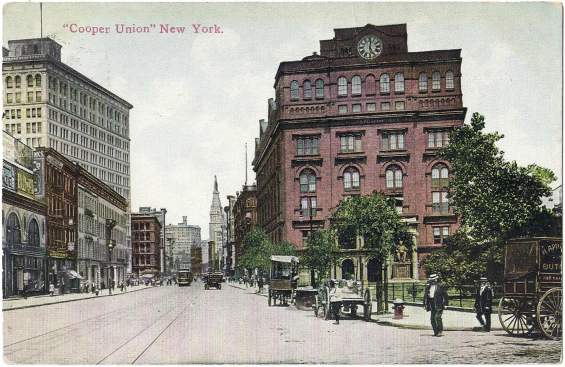research and destroy new york city

————
May 1, 2013—On April 23, 2013, Cooper Union’s board of trustees announced that they will begin charging
tuition, ending the university’s 154-year-old mission of
providing free education to all those who merited entry. While
it might seem counterintuitive to get behind a relatively
small struggle at one of the most exclusive universities in
the country—an old-fashioned meritocracy in a world in which a
young person’s “potential” is directly proportionate to their
family’s economic station—Cooper Union is by far the most
diverse of all elite colleges: white students are a minority
here and two-thirds of the student body attended public high
schools.Institutions funded by philanthropy and real estate holdings might well be unsustainable as foundations for a quality education, but the school’s economic problems and its board’s regressive solutions mirror the battles taking place at countless other universities both public and private. From CUNY tuition hikes to the torpedoing of Medgar Evers College to NYU’s unprecedented land grab, students across the city are fighting back. As student struggles continue across the globe, Cooper Union is a flashpoint for something much larger than itself. Peter Cooper, the school’s founder, railed against the scourge of student debt a century and a half before the streets of Montreal exploded with resistance, before New York universities faced a string of militant occupations, before students in California put their bodies on the line against tuition hikes and the commodification of higher education. The ongoing fight at Cooper Union is but one part of the broader struggle against austerity, debt, and all other symptoms of capitalism. |
※
home